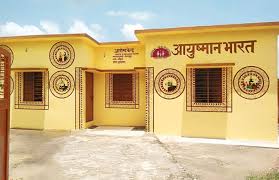Geneva, May 29, 2024 – India is making significant strides towards achieving the United Nations Sustainable Development Goals (SDGs), particularly in health, as highlighted by Apurva Chandra, the Union Health Secretary, during his address at the 77th World Health Assembly (WHA) of the World Health Organization (WHO) in Geneva on Wednesday.
Addressing the plenary session, Chandra emphasized India’s remarkable progress in reducing the Maternal Mortality Ratio (MMR) and Infant Mortality Rate (IMR), placing the country on track to meet the health-related SDG targets. He noted, “Showing a significant drop in Maternal Mortality Ratio and Infant Mortality Rate in past decades, India is on track to attain the SDG targets.”
Chandra also pointed out India’s near-elimination of Visceral Leishmaniasis (kala-azar) and substantial reductions in tuberculosis incidence and mortality, showcasing the country’s comprehensive approach to combating infectious diseases.
Aligned with this year’s WHA theme, “All for Health, Health for All,” Chandra reiterated India’s commitment to universal health coverage through the Ayushman Bharat initiative. “India launched the Ayushman Bharat meaning ‘Live Long India’ to promote universal health coverage by operationalising more than 1,60,000 Health and Wellness centres (Ayushman Aarogya Mandirs),” he said.
Highlighting India’s capabilities in health emergency preparedness, Chandra cited the WHO Parties Self-Assessment Annual Reporting Tool (SPAR) report, which gives India a core capacity score of 86 percent for detecting, assessing, reporting, and responding to health emergencies, surpassing both the Southeast Asia Region and global averages.
The Union Health Secretary also underscored the impact of the Pradhan Mantri Jan Arogya Yojana (PM-JAY), describing it as the world’s largest health assurance scheme. PM-JAY provides over 343 million beneficiaries with a health cover of $6,000 per family per year for secondary and tertiary care hospitalisation, significantly reducing out-of-pocket healthcare expenses.
In addition to these initiatives, Chandra highlighted India’s advancements in digital healthcare, positioning the country as a global leader in digital public goods. “India has emerged as a lighthouse country in digital public goods for global collaborations,” he stated.
Reaffirming India’s dedication to equitable healthcare, Chandra called for universal access to high-quality medical products. “Equitable access to medical countermeasures is a fundamental right for all. India, in collaboration with WHO, intends to further strengthen the drug regulatory system to ensure quick access to high-quality medical products for all,” he asserted.
Chandra also mentioned India’s growing role as a hub for medical tourism, thanks to its highly trained and experienced healthcare workforce.
With these advancements, India is poised to not only achieve the health-related SDGs but also serve as a model for other nations striving for universal health coverage and improved health outcomes.












